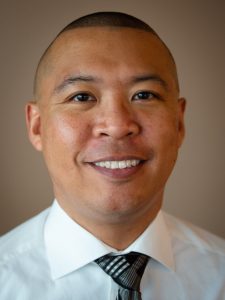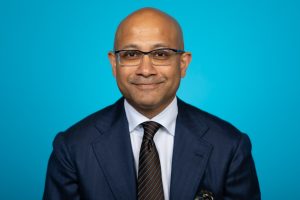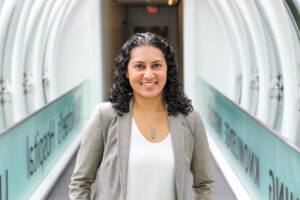The HSLI program is worthwhile for anyone considering positions in leadership or for anyone pursuing academic projects that involve innovative research.
As a fellow in reconstructive urology, Dr. Sarah Neu became interested in the System Leadership and Innovation program, which has since been renamed the Health Systems Leadership and Innovation (HSLI) program. She was completing a research year when she decided to pursue the master’s program to build on her interest in healthcare leadership and innovative patient care.
Now, Dr. Neu is a practicing urologist and surgeon-investigator at Sunnybrook Health Sciences Centre and Assistant Professor for the Division of Urology at the University of Toronto. When asked about her journey with IHPME, she says her time in the program was instrumental in preparing her for her next steps in academic surgery. She emphasizes the program’s comprehensive curriculum which provided her with a deep understanding of healthcare systems, enabling her to approach surgery from a systemic perspective.
Dr. Neu also highlights the extensive leadership training she received as a student in the HSLI program, drawing particular attention to the program’s focus on innovation to approach clinical practice and patient care from a creative point of view.
The leadership training I received at IHPME equipped me with essential skills to lead multidisciplinary teams effectively, manage healthcare projects, and drive innovation in surgical practices.
Dr. Neu’s research interests are highly interdisciplinary, including population-based epidemiology studies, pharmacological epidemiology, innovative surgical practices, and integrating artificial intelligence (AI) into medical practice. Recently, she secured a grant from the Canadian Urological Association Scholarship Foundation (CUASF) to study ecological momentary assessment patterns in patients receiving Botox injections for overactive bladders.








